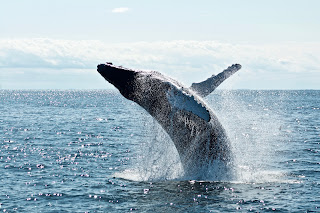Laura Theis’s poetry is whimsical, playful and provocative. Her poems dance in a duality of qualities: subtle messages that are deep in their implications. Sadness and humor sometimes complement each other.
The
originality of her literary approach marvels the reader while communicating
something about the world, society or human nature.
Her
poetical world immerses itself in the life stories of people to illuminate
slices of experiences, or maybe to just honor the beauty that goes unnoticed
when we don’t take the time to pay attention to it. For example, the delight of
a sunset offering a delicate farewell to the day.
I feel a connection to the title of this
collection… It appears to allude to those who perceive nuances around them. It
refers to a certain perception, the acknowledgement of an ability to sense
something that tends to go unnoticed by most people. Those invisible things may
be aspects of reality to which others are callous and indifferent.
Some of her poems in A Spotter’s Guide to
Invisible Things contain an unexpected ending that may surprise the reader.
Others celebrate the simplicity of life, exposing the essence of unique moments
of contemplation.
The evocative power of her words kindles a
sense of intrigue, a musical rhythm skillfully woven into it. One is left
wondering about the characters that hover in those poems, treading with soft
steps through the stanzas, never to come back again. We are left longing for
more...
I thank the poet for kindly sharing her book
with me for My Writing Life.
Laura Theis was born and raised in Germany, in
a town where all the streets and roads had names of mythology or fairy tales. She
now lives in the UK and writes in English. She received a Distinction from
Oxford University’s MSt in Creative Writing. Her works have appeared in Poetry,
Mslexia, Rattle, Magma, Strange Horizons, and in various anthologies.
Her Elgin Award-nominated debut How to
Extricate Yourself, an Oxford Poetry Library Book-of-the-Month, won the
Brian Dempsey Memorial Prize. She was the recipient of the Society of Authors’
Welton Award, the AM Heath Prize, EAL Oxford Brookes Poetry Prize, Mogford
Prize, Hammond House International Literary Award, the Alpine Fellowship and a
Forward Prize Nomination. A runner-up for the Mairtin Crawford Award. She was
shortlisted for the Women Poets’ Prize, the Bridport Prize, the Margaret Reid
Poetry Prize, the Hippocrates Prize and a finalist for numerous other literary
awards, including the National Poetry Competition and the BBC short story
Award.
I will share a fragment of one of the poems
from this collection (the letters are not capitalized):
the
silent sea
it is not perhaps
our greatest
crime
hardly worth
mentioning amongst
all the
heinous acts of pollution
oil spills
and melting
ice caps but
we have
stolen the silence
from under
the waves
the waters
that live here cannot
recall a
life without the constant
drone of
cruise ship motors
which have
turned their oceans
into the
kind of noise box
familiar to
anyone
who ever
tried to have
a
conversation in a crowded nightclub
there’s no
room for nuance
when
communication means
someone
shouting something
over a
background din
knowing that
whether or not
they will be
understood
is left up
to the guess work
of lip
reading
the past
months of sudden quiet
marked the
first time the whales
were granted
the bliss of real stillness…


.jpg)